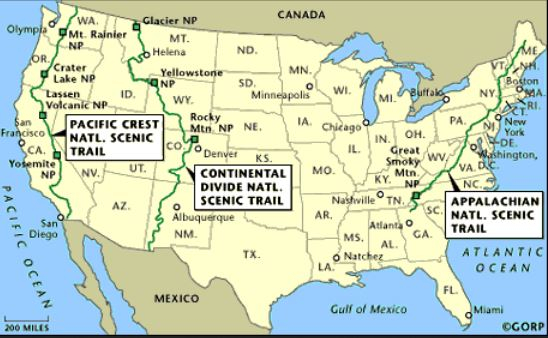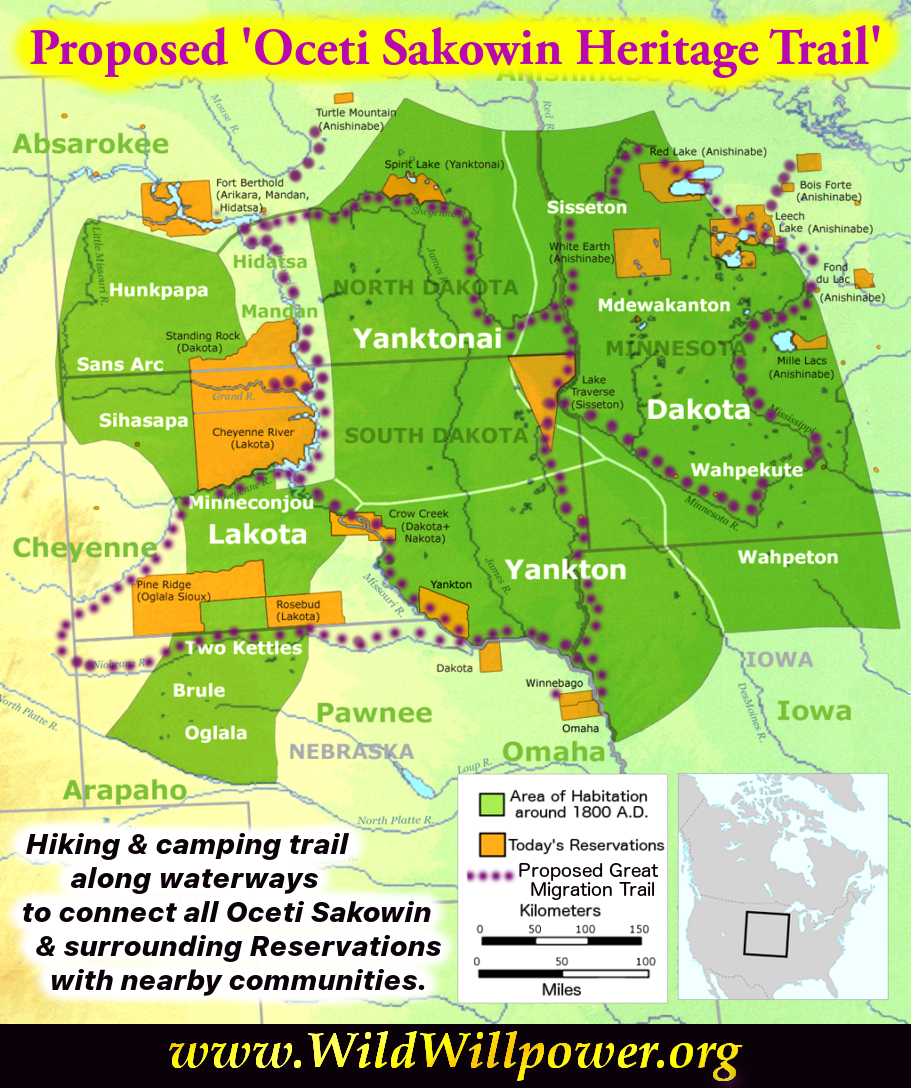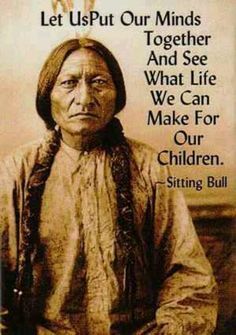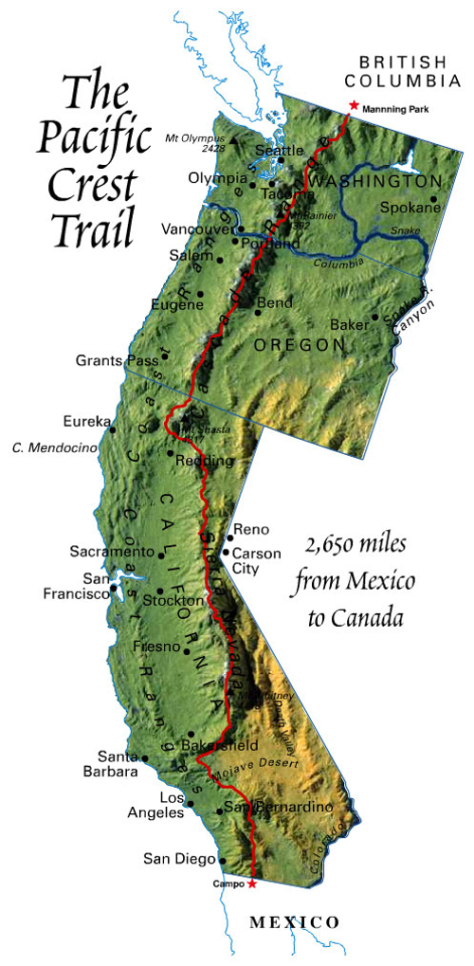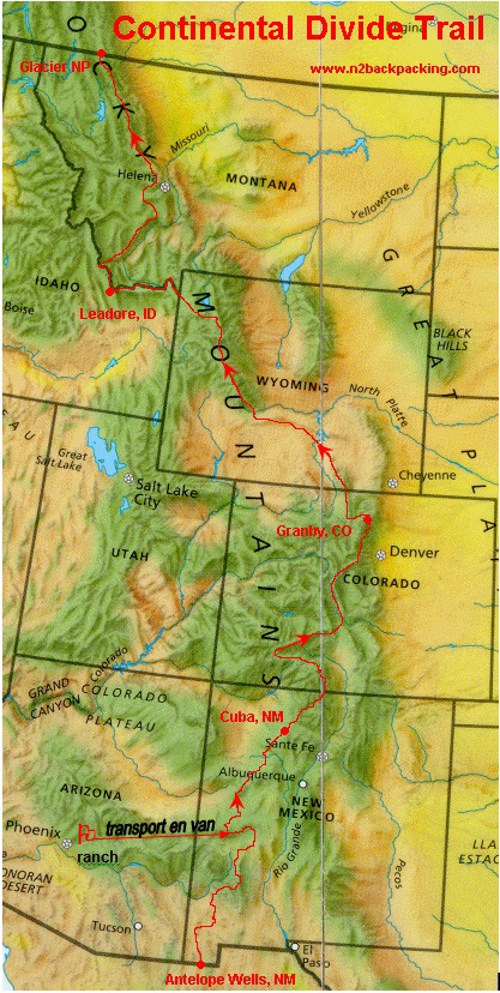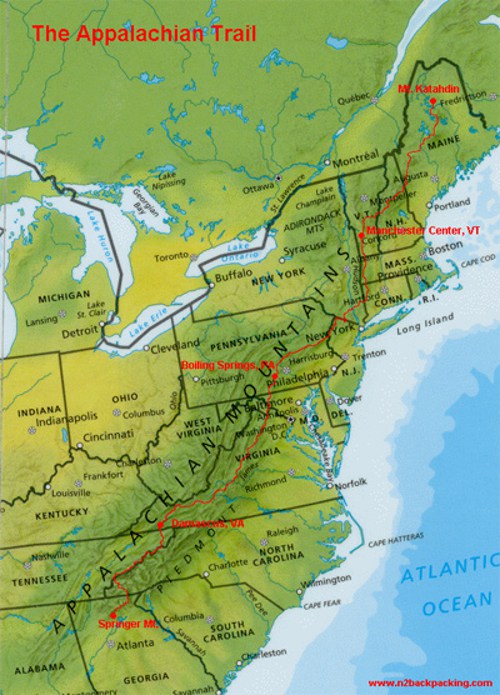A Proposal:
Part of Wild Willpower’s National Plan.
Please email WildWillpowerPAC@gmail.com with regard to your thoughts, feelings, ideas, and/or offerings of support.
The following map shows the ancestral lands of various Dakota, Lakota, Nakota, and other midwest tribes (dark green sections) compared to the locations of their current reservations (orange sections):
Click to Enlarge:
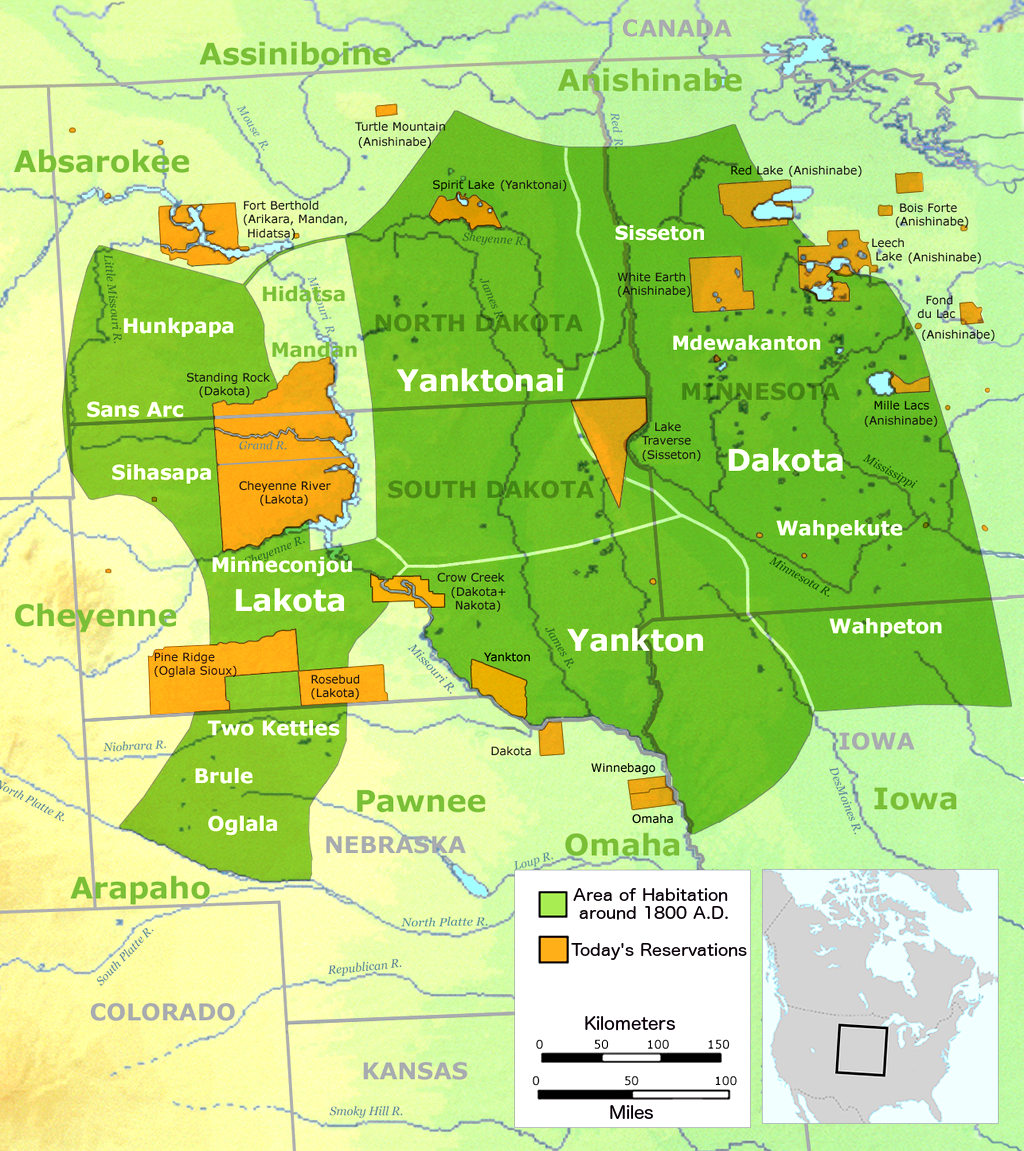 Above map from WikiWand, “Dakota (people)”: www.wikiwand.com/de/Dakota_(Volk) Retrieved 8-4-2017.
Above map from WikiWand, “Dakota (people)”: www.wikiwand.com/de/Dakota_(Volk) Retrieved 8-4-2017.
The U.S. currently has three major hiking trails, the Pacific Crest Trail, the Continental Divide National Scenic Trail, & the Appalachian Trail:
Click to Enlarge:
Thank you U.S. Embassies for the above map!
Wild Willpower PAC proposes creating a fourth trail, tentatively called “The Oceti Sakowin Heritage Trail” to connect Lakota, Dakota, Nakota, and surrounding Reservations and non-native communities via a educational-recreational hiking and camping trail for hikers to walk, forage, learn, and connect with nature.
The project will create thousands of jobs, paying to people re-sow native prairie grass along a mile-wide corridor (where feasible) surrounding the trail. Economies of reservations & local communities will benefit from the recreational activity as Bed & Breakfasts, hostels, and outdoor hiking gear stores are sure to crop up. In the United States, the Outdoor Recreation Economy is responsible for:
- 6.1 million American jobs.
- $646 billion in outdoor recreation spending each year.
- $39.9 billion in federal tax revenue.
- $39.7 billion in state/local tax revenue. [1]
Educational and historical markers will teach hikers about the plants, animals, and other biological organisms they’ll encounter along the way. Other markers will teach about the history and cultures of local tribes, thus raising appreciation for, awareness of, and recognition for their heritage. This project could be a model for similar projects around the world – a way to restore ecosystems and bring people together, thereby creating a “clean economy”.
Most importantly, restoring native ecosystems and enabling indigenous people access a way of life that is closer to their ancestral way of living could be a stepping stone toward real healing for hundreds of thousands of people.
We cannot change the past, but we can change the future.
*****************************
Native animals will be reintroduced once the trail has been planted and secured. People will be able to forage, learn survival skills — fire making, water purification, foraging, etc. — thus finding a renewed vigor for life by reconnecting with nature. The proposed trail moves primarily along waterways, and may need to be adjusted for logistics purposes as they’re uncovered.
Proposed Location:
Click to Enlarge:
The Wild Living Skills Database & Smartphone App will provide an excellent platform to learn from Native teachers so that hikers can learn about wilderness safety, conservation, & survival skills. Positive-Impact Harvesting Techniques & fire safety educational materials will ensure ecosystems remain healthy instead becoming overrun, thus ensuring communities will remain safe.
References:
[1]: Outdoor Industry Association, “The Outdoor Recreation Economy”: www.asla.org/uploadedFiles/CMS/Government_Affairs/Federal_Government_Affairs/OIA_OutdoorRecEconomyReport2012.pdf
********************************
Read More About:
Civilian Restoration Corps
National Plan
Special thanks to Pinner
for the above commemorative of Sitting Bull.
About the Other Three Trails:
Pacific Crest Trail:
Stretches from southern California down by Mexico, up through The Mojave Desert, then through the Sierra Nevada Mountain range to Canada.
The Continental Divide Scenic Trail:
One of the largest conservation efforts in the history of the United States – visit U.S. Forest Service website to learn more.
Appalachian Trail:
In 1921, Benton MacKaye went public with his proposal for an Appalachian Trail. With publicity from a New York newspaper columnist, he then spent years working his network of trail & government contacts from Washington to Boston. By 1925, MacKaye generated enough support for a hiking trail rather than his original utopian visions— read more on the Appalachian Trail website.
Thank you for reading!

